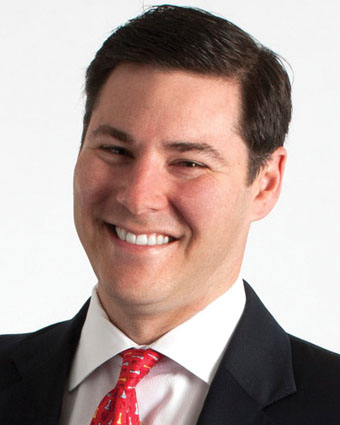

For hotel owners whose businesses have been devastated by the COVID-19 pandemic, the Paycheck Protection Program (PPP), administered by the U.S. Small Business Administration (SBA), has provided critical funds to help them weather the storm. However, taking PPP funds comes with many “strings” attached. One such little understood “string” is an approval right by the PPP lender, and also the SBA in some situations, over certain future sales or equity recapitalizations of hotel assets prior to PPP loan satisfaction (i.e., full loan repayment and/or forgiveness). These approval rights, if required, may cause significant delays for hotel owners eager to close a hotel sale or recapitalization. As the market for hotel purchases, sales, and equity recapitalizations starts to accelerate, hotel owners with unsatisfied PPP loans may need to build in extra time to obtain any necessary approvals.
Paycheck Protection Program – Background: Although highly complex and often misunderstood, the PPP remains one of the most popular COVID-19 relief programs for hotel owners. Despite a challenging roll-out, to date more than $662 billion has been funded through the PPP, taking the form, initially, as more than 7 million “loans.” Such loans are made by SBA-approved lenders participating in the PPP. The PPP was so popular in 2020 that last December, Congress authorized further funding for it in 2021 as part of the so-called “second draw” PPP.
Of particular interest to hotel owners is that a PPP loan may ultimately be “forgiven,” meaning that the loan is converted into a grant that never has to be paid back so long as certain conditions are met. However, loan forgiveness is far from automatic. Many hotel owners, especially ones who have laid-off large numbers of employees, have PPP loans that have not yet been forgiven and perhaps never will be. Still, the PPP provides a great benefit: much needed liquidity in a time where few banks are lending to hotel owners.
However, hotel owners looking to buy or sell hotels (or recapitalize themselves) may be surprised to learn that the PPP lender, and in many cases the SBA itself, has approval rights over these transactions if the hotel owner’s PPP loan has not been fully satisfied.
Triggers and Requirements: Under the PPP, a “Change of Ownership” occurs when any of the following occurs:
(a) at least 20% of the equitable ownership of a PPP borrower is transferred;
(b) the PPP borrower sells at least 50% of its assets; or
(c) a PPP borrower merges into another entity.
Any PPP borrower undergoing a Change of Ownership prior to its PPP loan having been fully satisfied must get its PPP lender’s approval.
Changes of Ownership involving (a) a transfer of more than 50% of equitable ownership in the PPP borrower; (b) a sale of 50% or more of the assets of the PPP borrower; or (c) a merger, will require both PPP lender authorization and SBA approval. However, a PPP borrower may avoid the SBA approval requirement by submitting a forgiveness application to the PPP lender and opening an interest-bearing escrow account controlled by the PPP lender with funds equal to the outstanding PPP loan balance. Even if the aforementioned actions are taken, the PPP lender’s consent is still required unless and until the PPP loan is fully satisfied.
Practical Effects: In situations where the consent of the PPP lender and/or the SBA is required, the PPP borrower will be required to submit transaction documents to the PPP lender for approval. If the transaction also requires SBA approval, this request will be managed by the PPP lender, and the PPP borrower should be prepared to submit substantially more supporting information, including an explanation of why the PPP borrower cannot fully satisfy the PPP loan or escrow funds (as described above) prior to the closing of the transaction; a copy of the letter of intent or purchase agreement that specifies the responsibilities of the PPP borrower, the seller (if different from the PPP borrower), and the buyer; disclosures of whether the buyer also has existing PPP loans; and a list of all owners of 20% or more of the buyer. The SBA will require that a buyer of more than 50% of the assets of a PPP borrower assume the PPP borrower’s obligations under the PPP loan, either in the purchase agreement or by a separate assumption.
The SBA will take 60 days to provide a determination on a proposed transfer, which can significantly delay a closing. The other approach – applying for forgiveness and having the loan forgiven prior to the closing – could take just as long. In addition, a hotel owner consummating an asset or equity sale may be doing so to bring in much needed “rescue capital,” and thus may not have the financial ability to escrow sufficient funds, which would have eliminated the requirement for SBA approval of the transaction.
The above-mentioned requirements may bring many unwelcome “surprises” to a fast-moving transaction. The asset or equity buyer may be required to assume responsibilities that it had not anticipated. Or, the PPP lender and/or the SBA may impose unexpected conditions that could kill the deal.
Summary
It is crucial that hotel owners with unsatisfied PPP loans who are contemplating an asset sale or an equity recapitalization are prepared to address the issues raised in this article head-on. PPP borrowers considering an asset or equity sale should work with their legal counsel and their PPP lender early in the process to understand all of their lender’s and the SBA’s requirements for approving the transaction. As the old saying goes: being forewarned is being forearmed.
About this month’s authors
Joshua Bowman is a lawyer from the Boston law firm of Sherin and Lodgen LLP. Bowman is the chair of the firm’s hospitality practice group and is a well-known hospitality attorney.
Joseph Wang is a partner at Sherin and Lodgen LLP in the Real Estate Department and is a member of the hospitality practice group.








